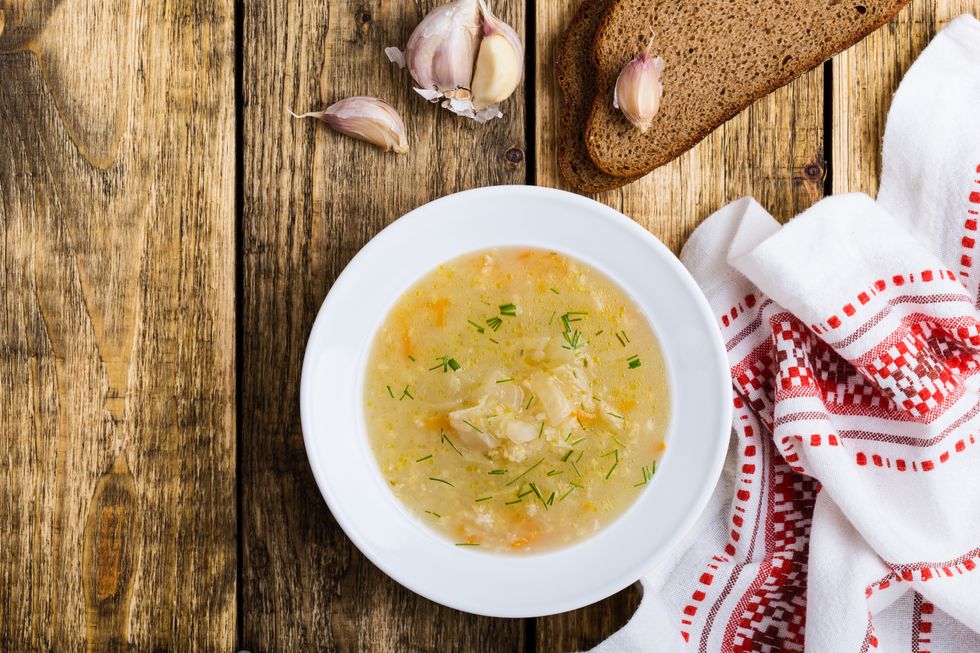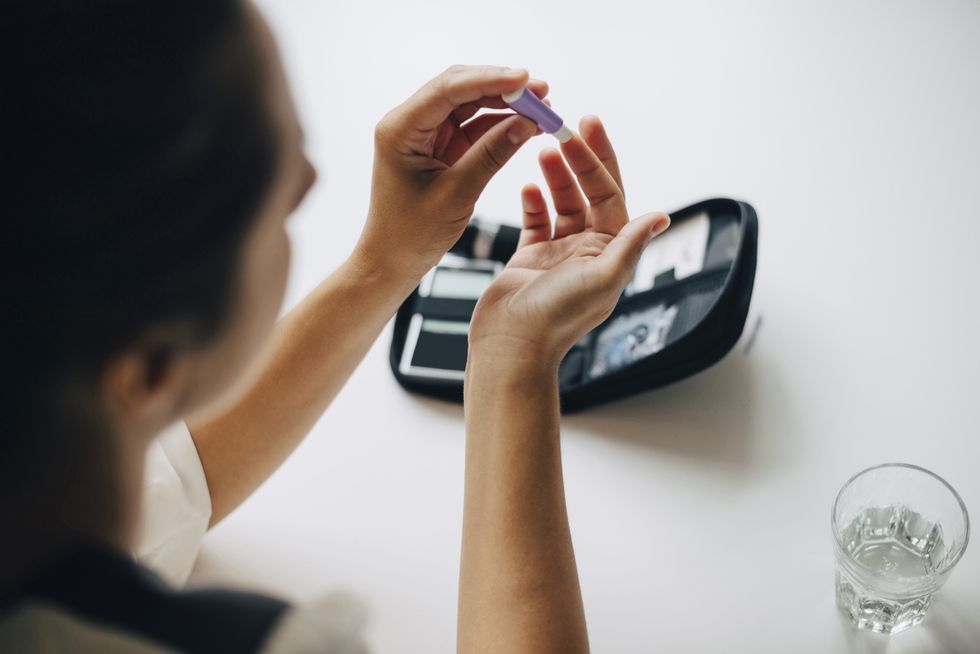Doctor Alasdair Scott discusses how to avoid diabetes
GBN
Ultra-processed foods now account for up to 60 per cent of daily energy intake in industrialised nations
Don't Miss
Most Read
Trending on GB News
Food additives have become ubiquitous in the Western diet, but a new study has revealed that some may pose risks when combined.
Scientists have warned certain mixtures of common food additives found in desserts, broths and sauces, may increase the risk of developing type 2 diabetes.
While safety assessments exist for individual additives, mixtures haven't received the same scrutiny despite widespread consumption.
The research, published in PLOS Medicine, examined how combinations of additives, rather than individual substances, affect health.

A mixture of additives found in broth could influence the risk of type 2 diabetes
GETTY
The large-scale study included 108,643 participants with an average age of 42.5 years, who were tracked over 7.7 years.
Researchers assessed food additive intake using detailed food diaries, cross-referenced with food composition databases and laboratory analyses.
From this data, they identified five common additive mixtures consumed regularly by participants.
During the study period, 1,131 participants were newly diagnosed with type 2 diabetes.
Two of the five identified additive mixtures were associated with a higher risk of developing type 2 diabetes, even after adjusting for overall nutritional quality.
Mixture 2 included emulsifiers such as modified starches and guar gum, the preservative potassium sorbate, and the natural colourant curcumin.
Mixture 5 contained acidifiers, artificial sweeteners, colouring agents and various natural flavourings.
These mixtures were linked to eight per cent and 13 per cent increased diabetes risk respectively.
Mixture 2 was commonly found in broth, dairy desserts, fats, and sauces. Mixture 5 was primarily associated with artificially sweetened or sugary beverages.
Researchers found Mixture 2 accounted for 18 per cent of the diabetes risk associated with fats and sauces.
More significantly, Mixture 5 explained 42 per cent of the risk from sugary beverages and 52 per cent from artificially sweetened drinks.
LATEST DEVELOPMENTS:

Sucralose can affect glucose metabolism by altering gut bacteria
GETTYWhile the exact mechanisms behind the increased diabetes risk remain unclear, gut microbiome disruption is a leading hypothesis.
Additives like carrageenan, acesulfame-K, and sucralose are known to affect glucose metabolism by altering gut bacteria.
Interestingly, individuals with type 2 diabetes often have microbiome profiles similar to those of people who consume non-nutritive sweeteners.
Some studies suggest certain mixtures may even cause cellular or genetic damage, underscoring the importance of updating food safety assessments to reflect how additives are actually consumed—in mixtures, not isolation.








